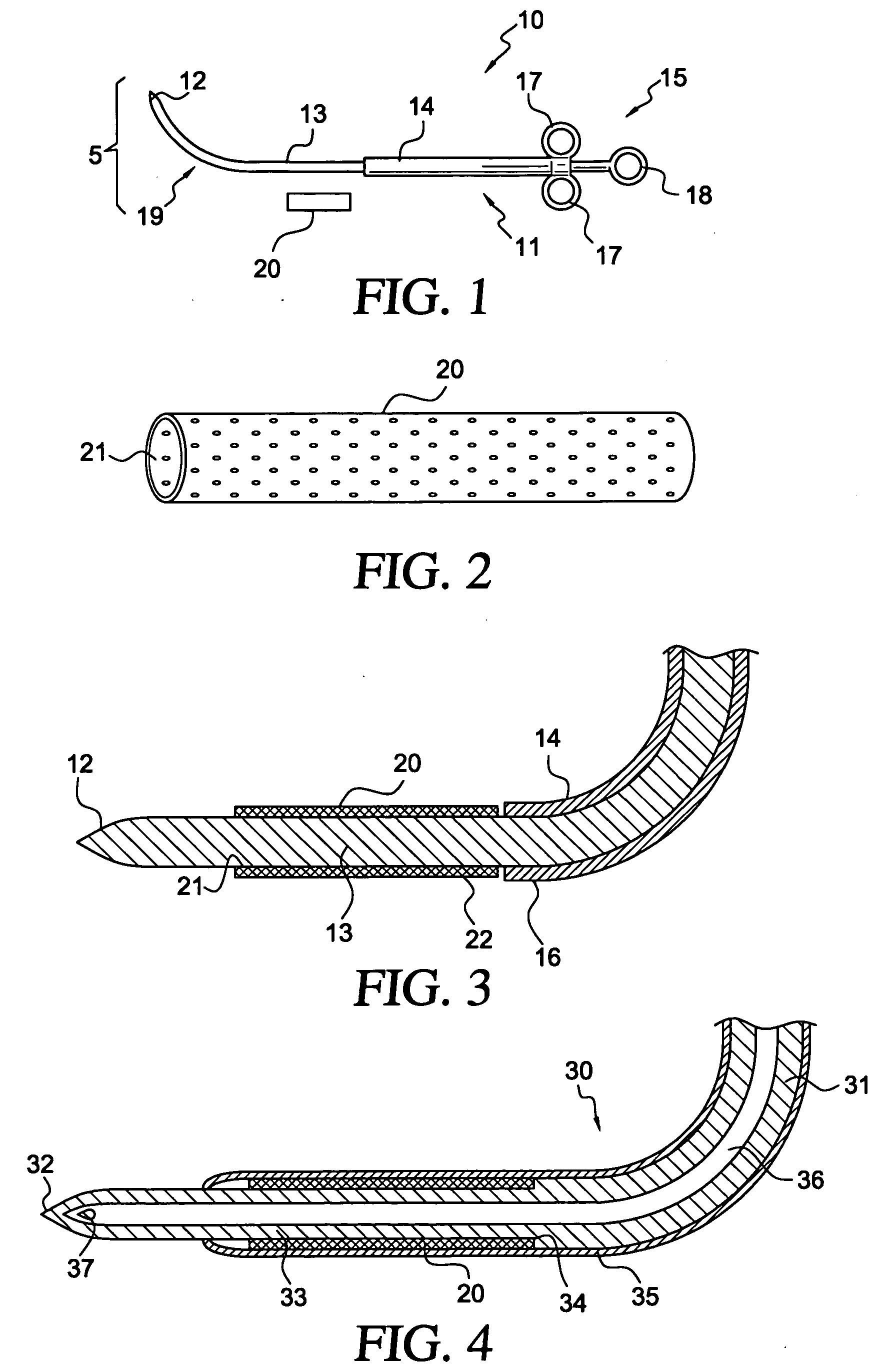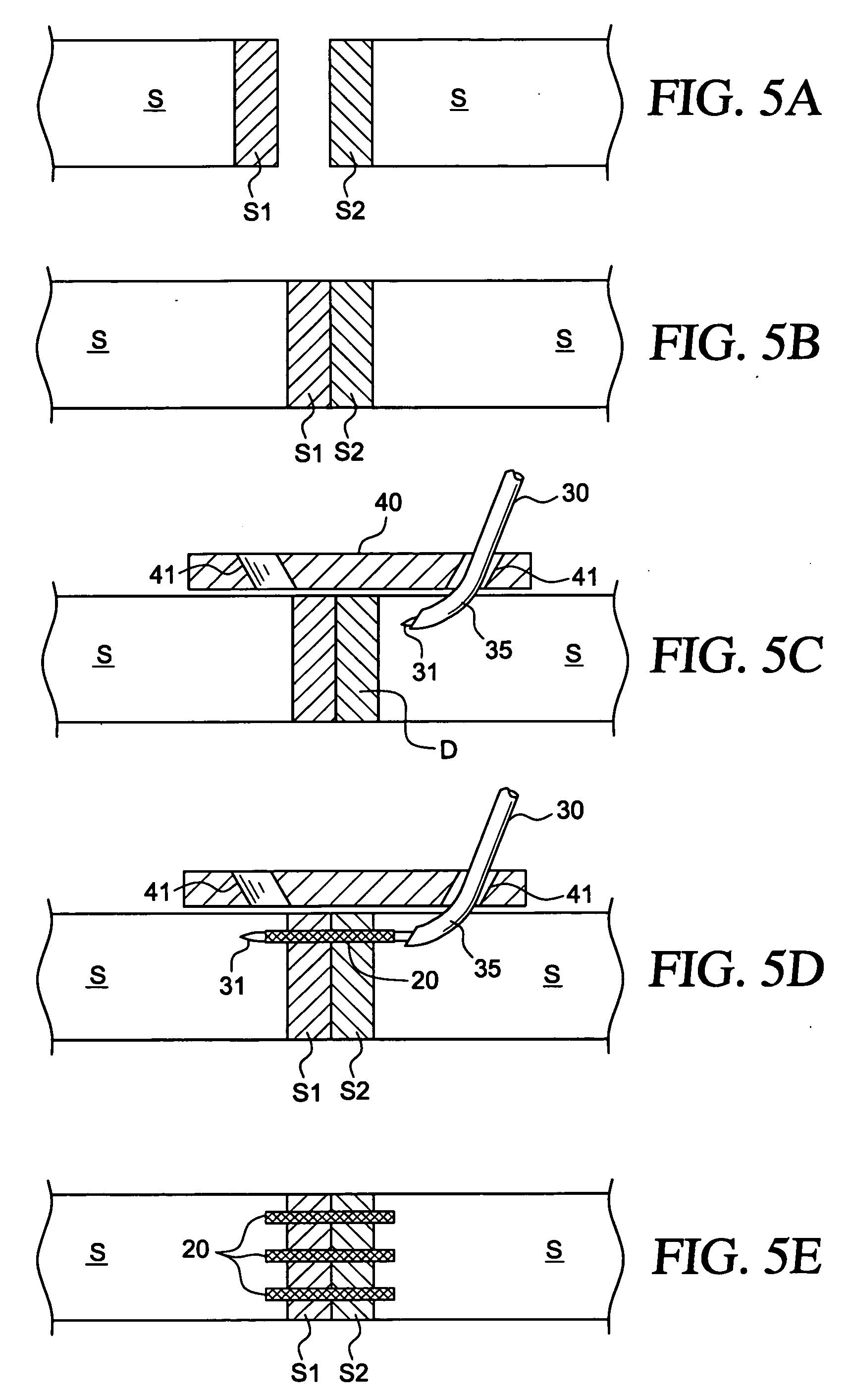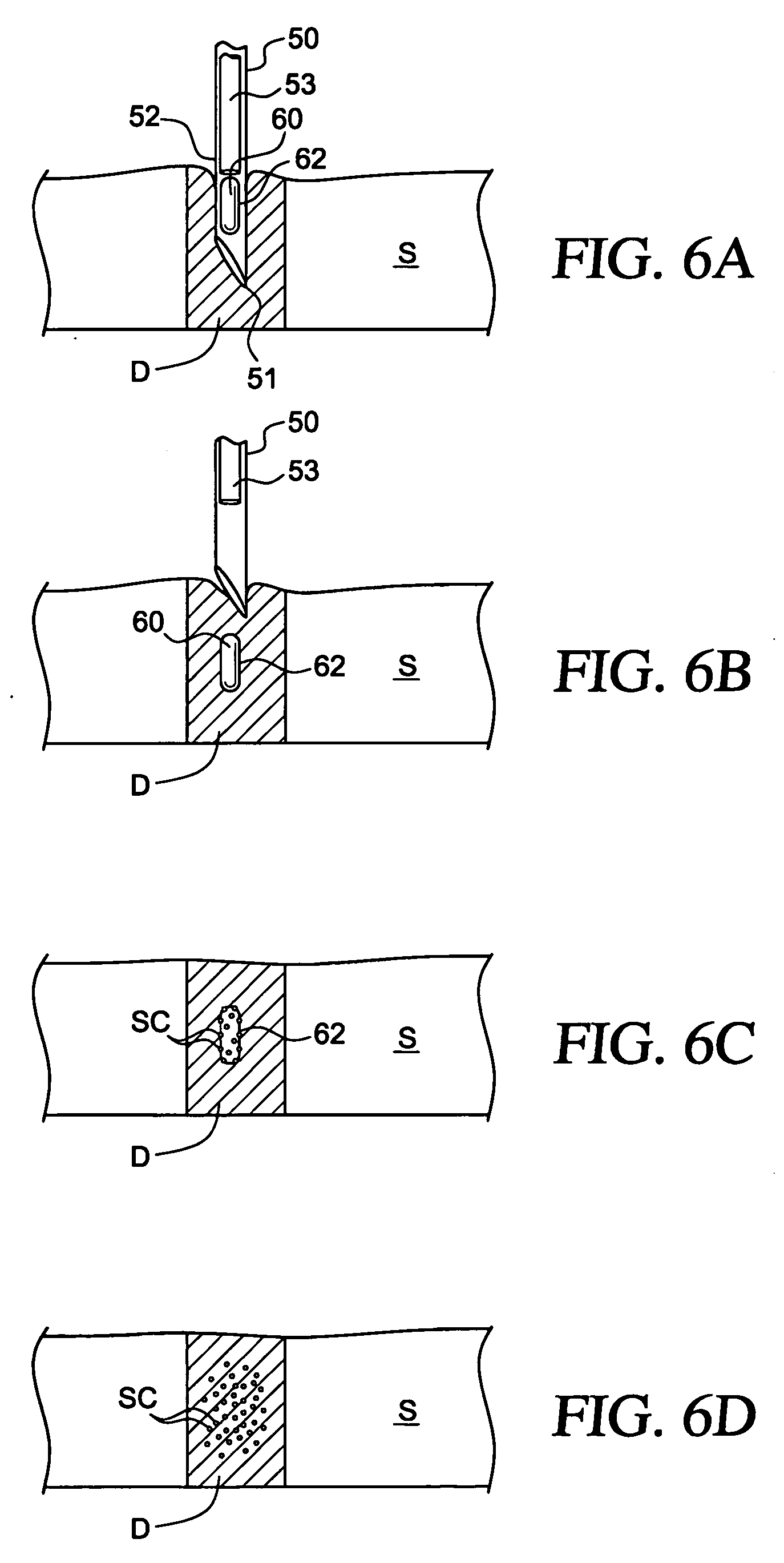Methods and apparatus for treating an injured nerve pathway
a nerve pathway and apparatus technology, applied in the field of apparatus and methods for treating nerve pathways, can solve the problems of paralysis, loss of sensation, and inability to promote the reestablishment of nerve pathways, and achieve the effect of restoring conductive pathways
- Summary
- Abstract
- Description
- Claims
- Application Information
AI Technical Summary
Benefits of technology
Problems solved by technology
Method used
Image
Examples
Embodiment Construction
[0026] Referring to FIGS. 1-3, apparatus constructed in accordance with the principles of the present invention for treating an injured nerve pathway, such as the spinal cord, is described. Apparatus 5 comprises insertion device 10 and microporous tube 20. A bioactive matrix, preferably including stem cells and essential nutrients to promote development of the stem cells, is deposited within the microporous tubes to promote regeneration of nerve tissue that spans the injured or severed portion of the spinal cord.
[0027] Insertion device 10 comprises needle 11, which is illustratively curved and includes distal tissue-piercing tip 12, shaft 13, sheath 14 and handle 15. Microporous tube 20 includes lumen 21 having a diameter slightly larger than shaft 13 of needle 11, so that tube 20 may be slidably advanced over tip 12 and onto shaft 13. When disposed on shaft 13, the proximal end 22 of the tube abuts against the distal end 16 of sheath 14. Sheath 14 is slidably disposed on shaft 13....
PUM
| Property | Measurement | Unit |
|---|---|---|
| effective diameter | aaaaa | aaaaa |
| effective diameter | aaaaa | aaaaa |
| effective diameter | aaaaa | aaaaa |
Abstract
Description
Claims
Application Information
 Login to View More
Login to View More - R&D
- Intellectual Property
- Life Sciences
- Materials
- Tech Scout
- Unparalleled Data Quality
- Higher Quality Content
- 60% Fewer Hallucinations
Browse by: Latest US Patents, China's latest patents, Technical Efficacy Thesaurus, Application Domain, Technology Topic, Popular Technical Reports.
© 2025 PatSnap. All rights reserved.Legal|Privacy policy|Modern Slavery Act Transparency Statement|Sitemap|About US| Contact US: help@patsnap.com



